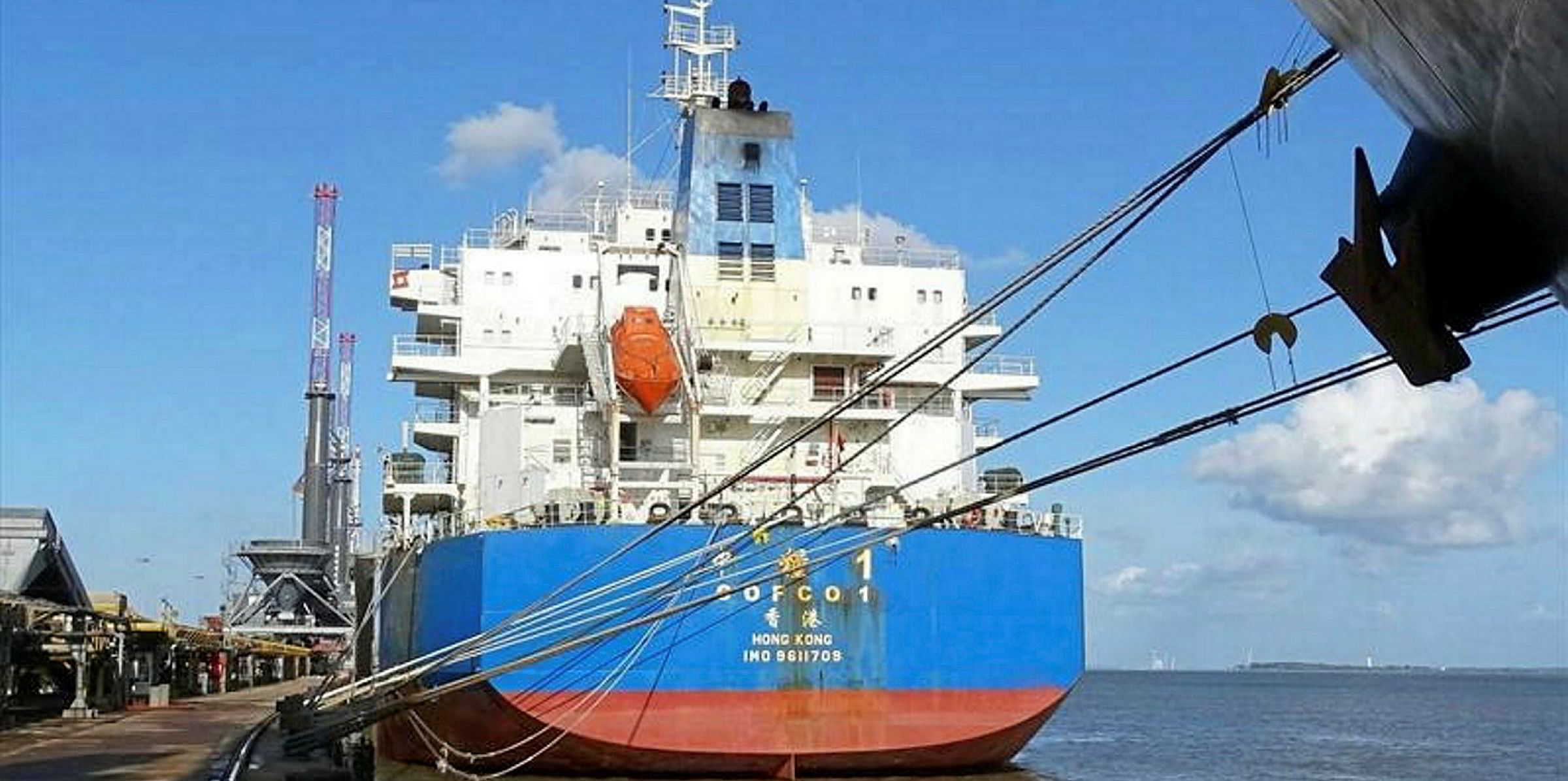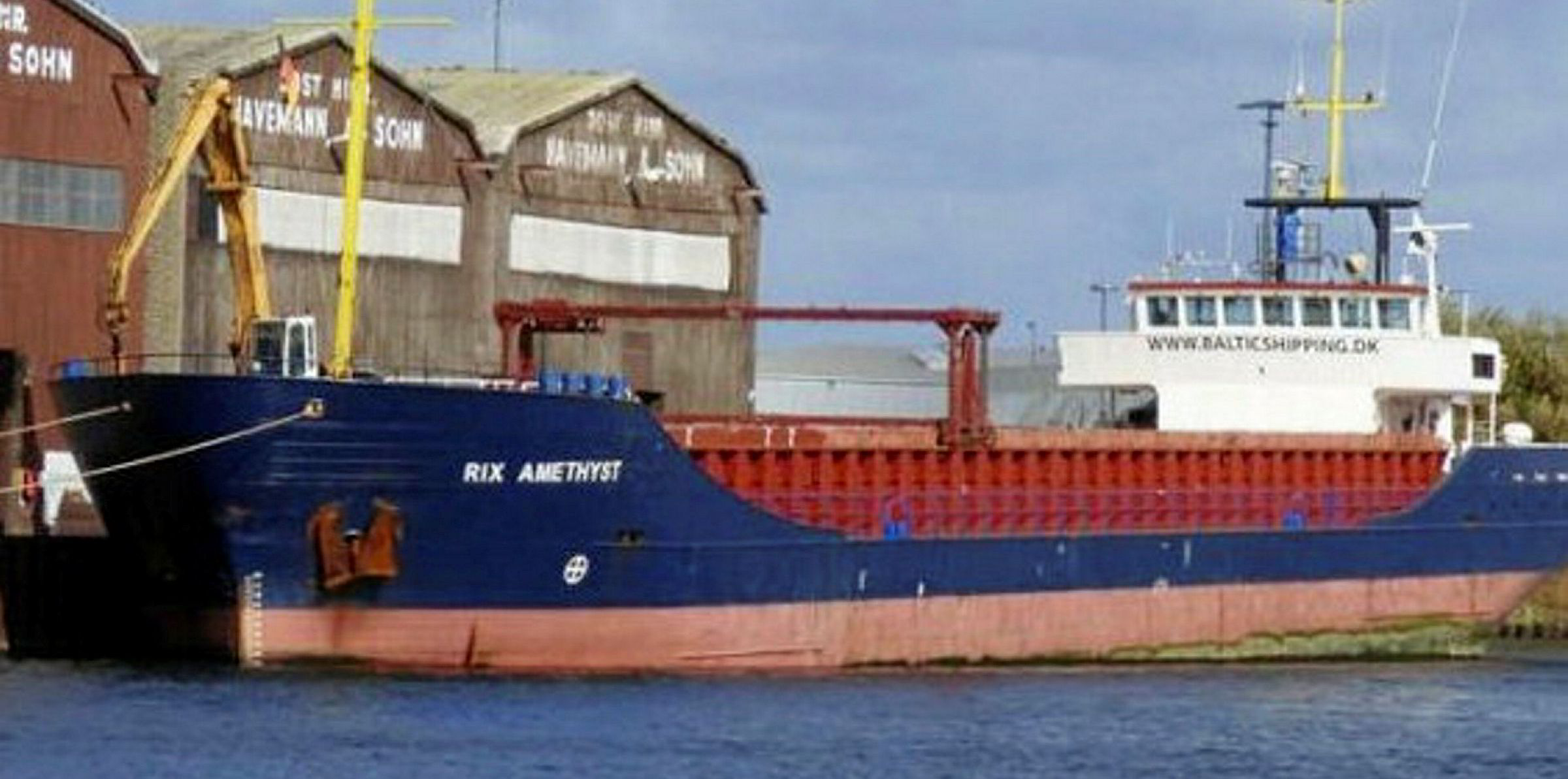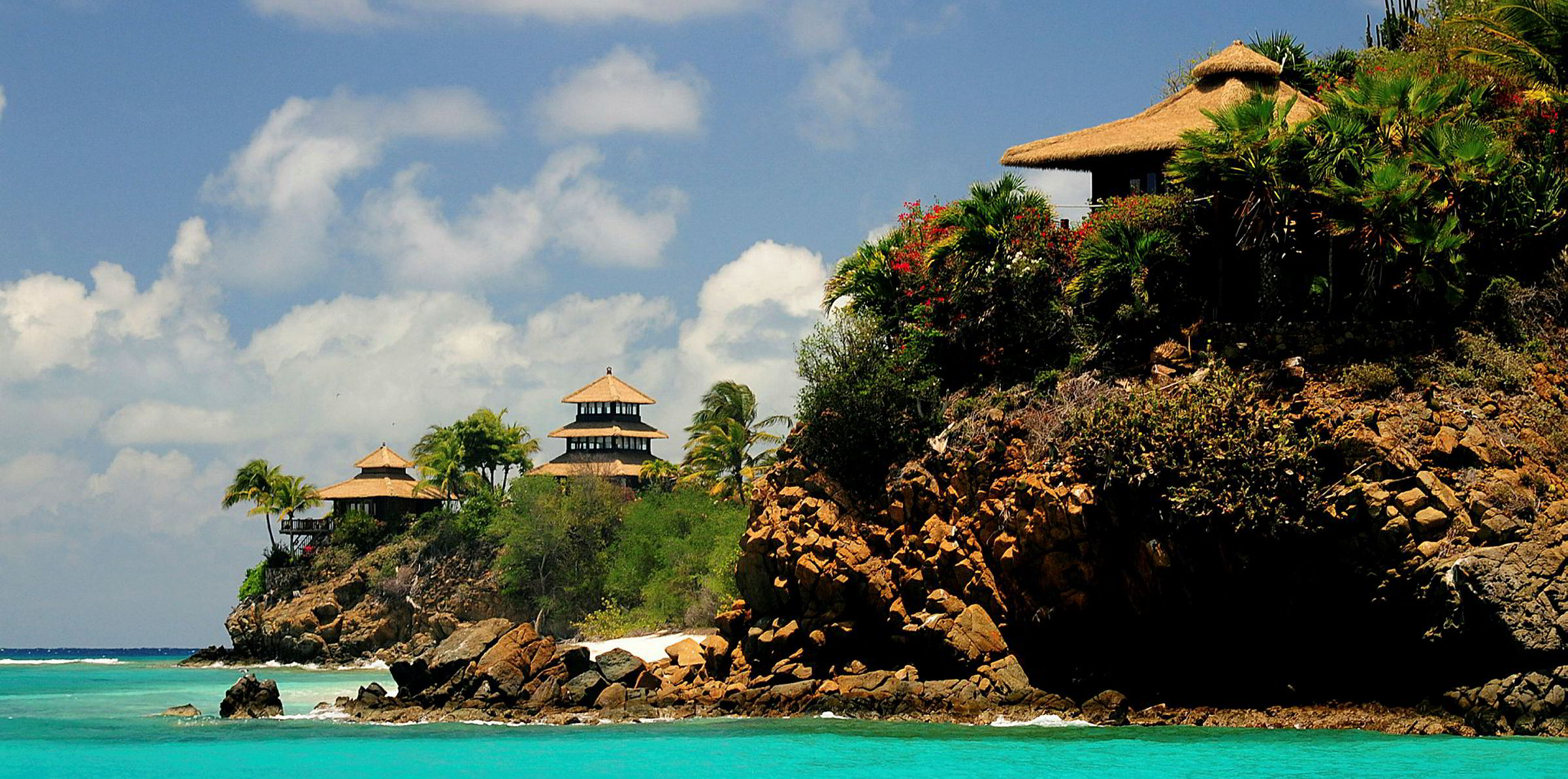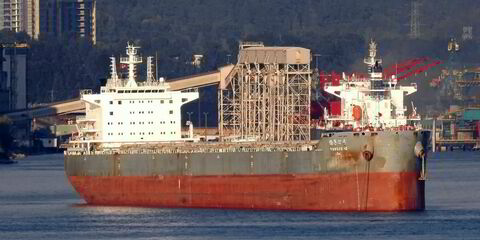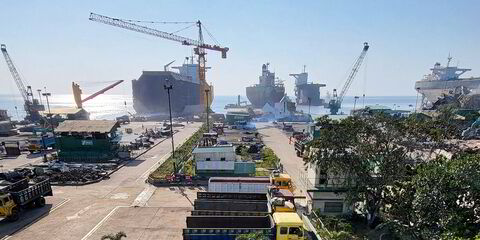Four tugboats have been deployed to rescue a post-panamax bulker that ran aground for a second time this week in South America's Parana River, where low water levels have hampered grain transport.
According to Alpemar Shipping Agency, the 81,531-dwt Cofco 1 (built 2014) first grounded about 465km up the river late on Monday before being refloated by a tugboat.
The Cosco Shipping Bulk-owned ship ran aground again about 7km northwest of San Pedro, Argentina, early on Wednesday.
Local agents told TradeWinds two tugboats — the Brutus and the Albacora — were deployed to rescue the ship on Wednesday afternoon.
A third tug, the Coopor Estibador I, joined the salvage efforts on Thursday morning. A fourth, the Coopor Estibador II, was on its way.
“The scenario ... is very serious. The vessel is deeply grounded and totally pushed over the sand,” said Alpemar, adding that strong currents had made rescue operations even more difficult.
Only inbound vessels with a draught of up to 7.5 metres are currently allowed to navigate through that section of the Parana River during daylight hours.
The vessel was carrying 41,900 tonnes of soybean meal from an upriver Louis Dreyfus terminal to Denmark, Alpemar said.
When contacted by TradeWinds, the Rotterdam-headquartered trader said the crew were safe and no damage to the ship and cargo had been reported.
Despite its name, the Cofco 1 is believed to be time-chartered to RWE rather than Cofco International. TradeWinds has approached Cosco and RWE for comment.
The 4,880-km Parana River, the second-longest in South America, runs through Brazil, Paraguay and Argentina. It is an important transport route for agricultural products.
Grounding incidents have been reported in the past, including those related to the 28,500-dwt AG Valor (built 2004), 75,356-dwt Lady I (built 2007) and 82,000-dwt Cassiopeia Ocean (built 2018).
But a decades-low water level has curbed shipments further at a time when operations are plagued by the coronavirus pandemic.
“We have been struggling since January,” a ship agent said.
According to media reports, vessels often need to limit their cargo intake or risk running aground in shallow areas.
Citing the Rosario Board of Trade in Argentina, MercoPress reported that shipping operations tended to be delayed because pilots had to be cautious when manoeuvring to avoid stranding in the river.
The Argentinian soybean trade could be affected for months before spring rain hits the region in the last quarter of 2020, according to Platts.
